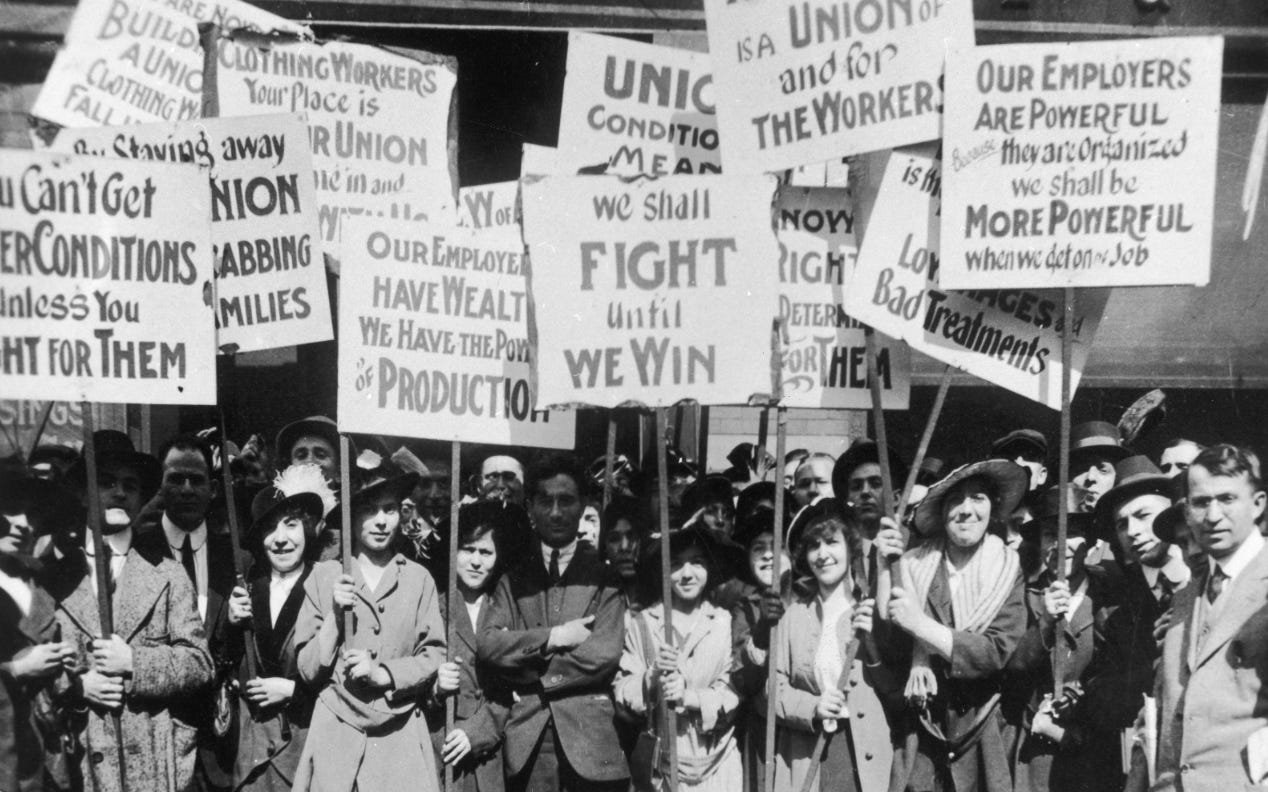How to be reasonably aware of the news without completely losing your mind
A White Pages Guide To Media Literacy (or something like it)
Top notes:
You might remember how last week I predicted that The Right Kind of White’s appearance on the Bookshop.org bestsellers list was just a short-term blip that happened to correspond with the week I announced pre-orders? Well, I was correct. I have since been unceremoniously replaced by a number of authors, most notably my new nemesis: a plucky up-and-comer by the name of Steven King. I am not going to Google Mr. King, but I assume we are both debut authors writing memoirs about Whiteness. If you, like me, want to show this character that he can’t just waltz in and act like he owns the Bookshop.org bestsellers list, then I strongly suggest you run, don’t walk, over to Bookshop.org and pre-order The Right Kind of White (afterwards, all jokes aside, please sign up to receive a thank you gift because I am sincerely grateful).
Speaking of gratitude, this is one of many articles that benefited from the wisdom and perspective of White Pages subscribers. I frequently ask the crew for advice, both in weekly threads and in the Flyover Politics discord that we share with
and her lovely community of readers. This piece in particular grew out of one of our delightful Wednesday community discussions. The question was “what’s one thing you’d change about political media?” and the responses were so great. Thanks, White Pages subscribers. You all are a gift, in so many ways. I am very much looking forward to exchanging snacks with you.
The thing you need to know about this essay is that I have absolutely no credibility on this topic. I am not an expert on responsible media consumption. I am not even a particularly good reader, in spite of the fact that I literally produce words for a living. If a paragraph looks really long and full of, like, facts and figures, my eyes start glazing over.
Need more reasons to distrust my opinions? I frequently make very terrible decisions about what deserves my attention. For every sensible move that I make on that front, I immediately follow it with an irresponsible chaser. Do you know how I often find myself spending the late-night procrastination time that I once reserved for Twitter? Going to Youtube, where the algorithm serves me up thumbnail images of two guys making a face like they just witnessed an elephant give birth next to the caption “BRITS TRY WHATABURGER FOR THE FIRST TIME.”
If I were a savvy media consumer, I would no doubt scroll away from those two preternaturally wide-mouthed gentlemen and instead read a book about Senegal. I would realize that there is absolutely no objective reason for me to care about what the “two Brits” think about Whataburger. I live thousands of miles from both Britain and the nearest Whataburger!. I am a very busy father! I have a long to-do list and a dwindling but not fully diminished stockpile of self-respect! I don’t even know what I did to summon those two rubbery-faced galoots to my home page. One day, they were just there, so I clicked on them (again: I am not smart), and they kept showing up. I have all the reasons in the world to make the more logical, high-minded choice here.
So of course…
Reader, I do not open up the book about Senegal.
Instead, you’d better believe that I click on that day’s new thumbnail so damn quickly. “I hope the Brits like Whataburger’s trademark spicy ketchup!” I say to myself as I watch them shovel Texas’s favorite fast food burgers in their faces. And then, the video finishes. I now know what the Brits think about Whataburger (they like it!). And what’s the Youtube autoplayer serving me up next? I get to find out whether the Brits also liked Taco Bell? Don’t mind if I do!
If I owe any of you an email, please take this information into consideration.
So yes, all of my media literacy opinions are highly suspect. But as somebody whose job involves sitting in front of a computer and both consuming and producing discourse, at least I come by them honestly. And if I pause from the self-deprecation act for a second, here’s what I can say for certain. I am a different person depending on how I respond to and process all of the “news” thrown my way in a given week. Depending on how intentional I am about my media consumption, I am either more or less tired, aggravated and distracted. More importantly, I am either more or less likely to keep up the work of building a better world. So media intentionality matters, even if it isn’t a skill I’ve mastered.
It is in that spirit that I offer the following suggestions. They’ve helped me a bit, and I hope they’re useful to you as well.
If you encounter an editorial about '"wokeness,” or “cancel culture” in a prominent legacy media publication, ask yourself, “is the author primarily motivated by wanting more people to agree with them at dinner parties?”
Hint: The answer is yes!
Listen, I understand. It is human nature to desire affirmation from those around you. This past weekend I was listening to the new Olivia Rodrigo record with my kids. My ten-year-old and I were really getting into it before my six-year-old suddenly declared that she would prefer silence rather than any track other than “Vampire.” What a bummer. I would have much preferred if we could have shout-sung “Ballad Of a Homeschool Girl” together. It’s a crunchy little alt-pop track with a classic Veruca Salt/Breeders vibe. It would have been a delightful father/children bonding moment. But my six-year-old disagreed. And I had to make my peace with that disagreement.
Let’s say, however, that I had a staff position at… well, I’m just spitballing here, but how about…the editorial page of our nation’s paper of record. If that were the case, I wouldn’t have this problem. Every time my family, friends, and colleagues disagreed with me about any topic (mostly, it seems, about the basic dignity of trans people or whether systemic racism is a matter worth addressing) I could just write a column about how their failure to affirm me was single-handedly ruining all sorts of things. You know, institutions like America's colleges, America’s cities, or even the entire Western world (or at least James Bond, it’s a very confusing editorial). And then I would feel better? Is that how it works?
I don’t begrudge the rights of New York Times, Washington Post or Atlantic columnists to write about whatever animates them. There is no law requiring me to read any columns that are basically the equivalent of renting a billboard that screams “MY COLLEGE-AGED CHILD SAID THAT MY POLITICS WERE ‘MID’ AND IT BUMMED ME OUT.” All of those publications employ some absolutely exceptional writers hat I can read instead. But I will still see the headlines, and I will still be tempted to rage-read them. And that’s why it’s important for me to look at that Ross Douthat or Pamela Paul byline and instead just say “oh, my friend, I get it. I wish that more people agreed with me too” before going about my day.
If you are reading an article about a profound human tragedy and the framing of that article is about which political party will benefit more from that tragedy, print that article out, attach it to an extremely high-powered rocket and shoot it into the sun!
Yuck!
Want an example? Me neither, but it’s instructive, so thanks for your patience.
As you may have heard, Texas Governor Greg Abbott continues to bus migrants and asylum seekers from the U.S./Mexico border to Democratic-led states and cities. It appears that many of those cities are struggling to provide services to those migrants. Depending on the municipality and whether they are currently led by Eric Adams, the mayors of the cities in question have either requested more federal support or engaged in their own weirdly aggro anti-migrant bluster.
Let’s take a step back for a second and think about the most important story here. There are human beings, thousands of miles from home, who have fled war, gangs and political repression. Upon arriving in a new country, they have immediately been shipped further away (against their will!). It is not clear what services and support are being provided to them, nor what outcome they desire now that they’ve arrived in the U.S. It strikes me that their stories— why they fled, what their experience has been, what they need— should demand all of our focus and attention.
Instead, here is a sampling of headlines from last week:
”More Migrants In Big U.S. Cities Bring New Tensions For Democrats”
“Blue State Migrant Crisis Sparks Political Disaster For Biden”
I repeat: Yuck.
Into the sun with them!
Likewise, if a major political party holds a televised debate in which Vivek Ramaswamy repeatedly calls for full fascism and all of the other candidates are like “whoa, whoa, whoa, let’s hold up there, let’s only do 80% fascism” and the following day you stumble across a debate recap that non-ironically asks “who won the debate?” rather than the more appropriate question (“what hell hath we wrought???”) you are entitled to a restorative justice process with the media outlet in question.
Personally, I would feel satisfied with a truth, reconciliation and accountability protocol that included any of the following:
The publisher of the offending media publication is required to eat three (3) consecutive meals with Ron DeSantis (no cutlery allowed, but that goes without saying).
The editor is temporarily detained in a room with Pete Buttigieg and Vivek Ramaswamy while our nation’s favorite (?) ambitious millennial fast-talkers each try to prove that they were the superior high school debater twenty five years ago.
The writer has to stare at Mike Pence’s eyes for one (1) full minute without blinking or looking away.
If you regularly consume articles in left-leaning publications about fascistic power-plays being attempted by Republicans in red states, ask yourself, “how is this story helping progressive counter-organizing in those states?”
I want to make this immensely clear: I don’t need to only hear good news! It is important to be vigilant against all of the very real threats to human rights and democracy in our midst. For those of us who care about racial, gender, economic and environmental justice, burying our head in the sand is a dangerous proposition. Ignoring the problem will only put vulnerable groups even more at risk.
And…
If you are a left-leaning person with access to the Internet, you most likely encounter thousands of headlines/investigative reports/wayward tweets/newsletters in a given month reminding you that— in states where conservatives are currently in power— that crew of would-be authoritarians and confidence schemers is up to no good. If you live in or have ties to one of those states, that number is even higher. And at least some of those warnings are helpful. As a Jeff Bezos-owned publication once reminded me, “democracy dies in darkness.”
I would encourage you, however, to notice how many of those missives leave you feeling some combination of dread, hopelessness and apathy. You’ve had that experience, right? Over the course of a day, more and more news about political malpractice keeps piling up on your doorstep. One minute, you’re reading about how Idaho’s draconian anti-abortion laws have caused OBGYNs to flee the state. The next, you’re livid over a story about anti-trans policies in Montana. And then you’re listening to a podcast about gerrymandering in Texas, or scrolling past a tweet about how children can work in poultry factories in Arkansas now. By the time you’re done, you’re feeling frightened, angry and deeply distrustful of entire swaths of the U.S. population.
What’s lost in that equation?
Again, it isn’t some false Pollyanna-ish hope. It wouldn’t actually help matters if your favorite left-y writer stopped warning you about creeping fascism and instead delivered you news about new baby pandas at the zoo. What’s actually missing is the extra context about organizing efforts to counter those threats. That’s crucial information if our goal is actually to create change. Who is doing the work? What’s their strategy, both in the short and long term? Where are they seeing success and pitfalls? And most importantly, what support do they need, both from people near and afar?
To cite a recent example, I currently live in Wisconsin. Last week, I received multiple messages from friends across the country about the latest in a long-line of anti-democratic power plays by our state GOP (they are threatening to impeach a democratically elected Supreme Court justice if she votes to eliminate our comically gerrymandered maps). Every single one of these well-meaning messages had the same theme: “Oh I’m so sorry! It must feel so hopeless there!”
I appreciate the concern, truly. But I knew that I was receiving these distraught messages because too much of the reporting on the impeachment threat buried the most important context.
While the Wisconsin Democratic Party has, in the past, been caught flat-footed by the GOP (I have my share of critiques of the Badger Dems, both on ideological and organizing grounds, but I am a million times more aligned with them then I am with the Wisconsin GOP), they are actually doing some strong proactive organizing on this particular front. Even before impeachment is guaranteed, they’re preemptively launching both media and door-knocking campaigns against Republicans in vulnerable districts. That’s a good strategy! And I want it to work, quite desperately actually. But it won’t work if the message spread throughout the nation is that “no matter how Wisconsin votes, the GOP will just block it because they’re evil.”
Every time I see a breathless story about how hopeless the political situation is in this or that red state, I’m heartbroken. Not because those are bad articles, but because I can tell that they likely mean well. They are attempts to do the work, but they’re not actually as helpful as they seek to be. If our goal— both as writers and consumers of outrage pieces— is to actually stop the most harmful threats in our midst, we have to keep asking and answering the same two questions, over and over again:
“Ok, that’s awful, so where are the organizers and how can I help?”
If you (by which I mean “I”) have *almost* finished writing your newsletter for the week and are already thinking about celebrating by cruising over to Youtube and seeing what the Brits think about Jack In The Box, perhaps take a quick second to ask yourself a few questions first.
It’s not necessarily wrong that I spend a certain percentage of my wild and precious life watching other wild and precious human beings eat food and comment on it. We can not live on books about Senegal alone! But before I just slide that cursor over to the semi-friendly confines of one of the few algorithmically-generated black holes I still allow myself, it is worth spending an intentional minute or two with the inner Marie Kondo in my heart. “Will the path of algorithmical least resistance spark joy today?” “Do I want to hang out with two British fast-food aficionados with overly expressive faces?” “Will my life be enriched if I finally know their thoughts on the Jumbo Jack?”
And you know what? Maybe! At least on some days! Other days, maybe that brief moment of consideration will lead me to send an email or text to a friend, or perhaps open up a book about any number of topics (maybe even Senegal!) or just get to bed earlier so that I’m better rested to play Legos and listen to Olivia Rodrigo with my kids the following day.
Ok, one more. When you encounter a piece of journalism that truly helps you understand a topic, community, or complex issue in a helpful way, spend extra time with it, share it, revel in it.
I feel like I’ve spent a lot of time in this piece being very critical of professional journalists. That feels one-sided. I love and respect journalism! I think it plays a crucial role in our society! It is much more important than what I do here (bromides with tangents)! That’s why, of course, that I think it’s worth criticizing the fourth estate when it is harming rather than helping our ability to be thouthtful, engaged citizens.
But that’s why it’s equally important to praise and share articles that truly aid our ability to be engaged, (small d) democratic neighbors to one another.
You know what I loved this week, for example? This piece about the Athens County, Ohio School District, by Dan Xin Huang for New York Magazine.
On one hand, of course I was going to love this piece: It checks off so many of my personal obsessions (community organizing, schools and school desegregation, class dynamics within majority White spaces, and the particular area of Ohio and Indiana where the Midwest and Appalachia meet). But even setting aside all that, this is the kind of story that offered a window to a place where I don’t live and sparked my empathy, engagement and curiosity. After finishing the piece, I am truly rooting for Athens County’s school desegregation plan to work! And I can foresee, thanks to Xin Huang’s reporting, both positive headwinds working in their favor and real unanswered questions they’ll have to address. And thinking about all that in another community’s context, in turn, helped me to reflect on the way I relate to my own kids’ economically-and-racially diverse (and beautifully imperfect) public school.
You know why I loved that article? It’s not about whether it made me hopeful or angry. It’s that it it made me feel like an actual member of an interconnected community. It made me reflect on the impact that teachers, parents and students in Ohio have on one another, and therefore the impact that I have on my community here. A pretty good gift, if you ask me.
That’s all I’ve got for now!
Remember, there are so many outstretched hands demanding our attention. If a piece of media (even media that you agree with) is sapping your spirit, remember: you don’t have to give it your clicks or your time! Rage, schaudenfraude and self-righteousness have their place, but if that’s your entire media diet, you’ll probably still be hungry at the end of the day. We’ve got a long road ahead of us. We deserve the best of you: the best of your anger, for sure, but also your curiosity, creativity, and grace. And you, in turn, deserve to gift your limited time, energy and attention to media that lights up that entire spectrum of emotions.
End notes:
Song of the week:
In spite of the protestations of at least one family member, we have gotten through the new Olivia Rodrigo album multiple times and it’s quite good (though in my six-year-old’s defense, she’s not wrong- “Vampire” is the best song and if her grandparents are reading this don’t worry we listen to the version without the curse words). But for me, one of the joys of that album is that there really are multiple songs that give “Kim Deal” vibes. So between that and the fact that the best article I read this week was about the Buckeye State, let’s pay tribute to the pride of Dayton with her single greatest song (a big statement! but I stand by it!): Tipp City by The Amps. "Cottonhead, Cottonhead, I’ve had relations!/With anonymous Internet Nation!” A relevant observation, Kim Deal!











We definitely need more civic journalism that contextualizes the bad news with what we can do about it.
Thank you for this reminder that we do, in fact, have a bit of agency in what media we consume. I’ve been feeling overwhelmed recently with my current gaggle of news sources, and that’s even with less than I used to read! Related to this is the idea of minding your own business, which the writer Hanif Abdurraqib has spoken about (hat tip to Austin Kleon for blogging about this a week or two ago). Figure out the things that really are important to your attention, and allow yourself to let go of the rest. Not that you’re apathetic; rather, it’s about rationing your energy and caring so that it doesn’t get dispersed too thin.
You mention elevating journalism that is amazing; I highly recommend the Solutions Journalism Network for this. They are both a resource for training journalists in equitable, solutions-oriented reporting, and they collate stories and publications that do just that. In a previous life I worked as a journalist, and had the chance to train with SJN a couple times, and it was always so illuminating to be reminded that even very complex, difficult situations probably have someone who’s trying, however imperfectly, to make good change happen.